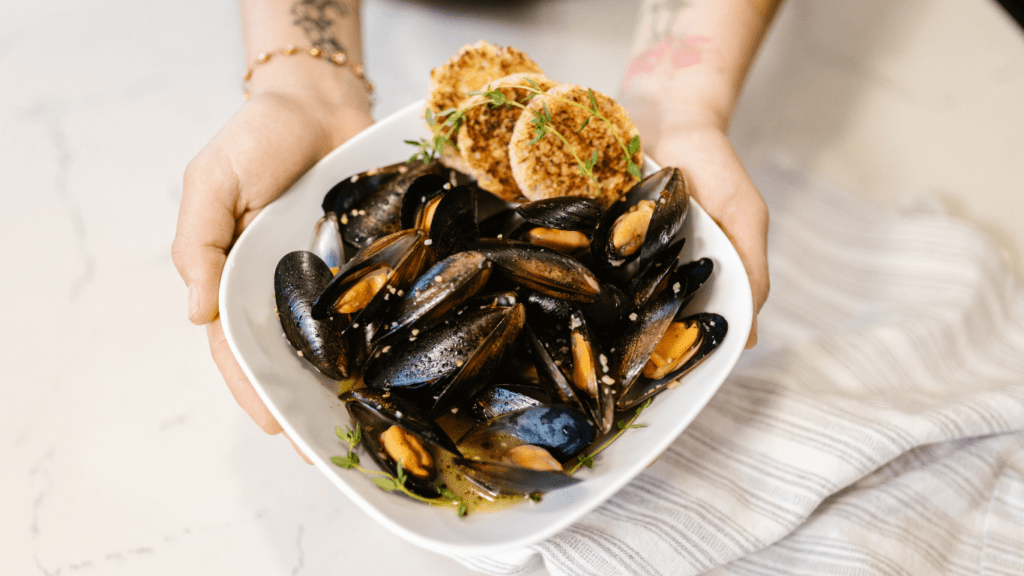As a food enthusiast, I’m always on the lookout for exciting trends in the culinary world, and one area that’s been gaining significant attention is the realm of plant-based cuisine. With more people embracing a plant-forward lifestyle, chefs and food innovators are constantly pushing the boundaries to create delicious and innovative plant-based dishes that cater to diverse palates.
In this article, we’ll explore the latest trends and innovations in plant-based cuisine, from cutting-edge ingredients to creative cooking techniques that are revolutionizing the way we think about vegetarian and vegan food.
Whether you’re a seasoned plant-based eater or simply curious about incorporating more plant-powered meals into your diet, you’ll discover a world of flavors and possibilities that are reshaping the landscape of modern gastronomy. So, join me on this culinary journey as we delve into the exciting world of plant-based culinary innovations.
Exploring the Latest Trends
Delving into the contemporary realm of plant-based cuisine, I delve into the latest trends that are shaping the culinary landscape. Innovations in plant-based cooking continue to captivate chefs and food enthusiasts alike, pushing boundaries and redefining traditional culinary practices.
- Inventive Flavors: Varied flavor profiles are at the forefront of plant-based gastronomy, with chefs experimenting with unconventional ingredient combinations to create bold and memorable dishes. From smoky jackfruit tacos to spicy cauliflower wings, the innovative use of plants is revolutionizing taste experiences.
- Sustainable Sourcing: Sustainability remains a key focus in modern plant-based cooking, with an emphasis on locally sourced, organic produce. By prioritizing sustainable ingredients, chefs contribute to environmental conservation while delivering fresh and nutritious dishes to patrons.
- Artistic Presentations: Presentation plays a crucial role in elevating plant-based cuisine to new heights. Chefs are embracing artistic plating techniques to transform plant-based dishes into visually stunning works of art, appealing to both the eyes and the palate.
- Tech-Driven Creations: The integration of technology in culinary innovation is becoming increasingly prevalent in plant-based cuisine. From 3D food printing to molecular gastronomy, technology is revolutionizing how plant-based ingredients are utilized in creating avant-garde dishes.
- Global Fusion: Plant-based chefs are drawing inspiration from global culinary traditions to craft fusion dishes that blend diverse flavors and cooking styles. The fusion of traditional recipes with plant-based ingredients results in unique and harmonious flavor profiles that showcase the richness of global gastronomy.
As the culinary world continues to embrace plant-based cuisine, the exploration of these latest trends reveals the dynamic and ever-evolving nature of vegetarian and vegan gastronomy. Venture into this vibrant realm to savor the innovative flavors, sustainable practices, and artistic expressions that define the forefront of plant-based culinary creativity.
Novel Ingredients Making Waves
Innovations in plant-based cuisine have introduced novel ingredients that are revolutionizing the culinary scene. Let’s explore some of the cutting-edge additions that are making waves in the realm of vegetarian and vegan gastronomy.
Unconventional Protein Sources
I’m fascinated by the emergence of unconventional protein sources in plant-based cuisine. Ingredients like tempeh, seitan, and hemp seeds are not only rich in protein but also offer a unique texture and flavor profile. These alternative protein sources are becoming increasingly popular among those seeking innovative ways to incorporate plant-based options into their diets without compromising on taste or nutritional value.
Alternative Sweeteners and Flavor Enhancers
Exploring alternative sweeteners and flavor enhancers has been an exciting journey in the world of plant-based cooking. From the subtle sweetness of maple syrup to the exotic notes of date paste, these ingredients add depth and complexity to dishes while catering to different dietary preferences.
By embracing natural sweetening agents like coconut sugar and stevia, chefs and food enthusiasts are redefining the art of creating delectable plant-based desserts and savory dishes without relying on traditional sugars.
Cutting-Edge Cooking Techniques
Exploring the realm of plant-based cuisine reveals a rich tapestry of innovative cooking techniques that elevate vegetarian and vegan dishes to new heights. Embracing modern culinary practices, chefs are pushing boundaries and redefining plant-based gastronomy.
Techniques such as sous-vide cooking, molecular gastronomy, and fermentation are revolutionizing the way plant-based ingredients are transformed into delectable masterpieces.
- Sous-Vide Cooking: Sous-vide, a French cooking technique where ingredients are vacuum-sealed in a bag and cooked in precise temperature water baths, is gaining popularity in plant-based kitchens. This method ensures even cooking and enhances flavors, resulting in perfectly tender vegetables, fruits, and grains.
- Molecular Gastronomy: Plant-based chefs are embracing the principles of molecular gastronomy to create avant-garde dishes that are as visually stunning as they are delicious. By manipulating textures, temperatures, and chemical reactions, chefs craft plant-based plates that dazzle the senses and elevate the dining experience.
- Fermentation: Fermentation is another cutting-edge technique embraced by plant-based innovators. From kimchi to tempeh, fermentation adds complexity and depth of flavor to vegetarian and vegan dishes. By harnessing the power of beneficial bacteria, chefs are transforming ordinary ingredients into extraordinary culinary delights.
Incorporating these advanced cooking techniques into plant-based cuisine not only expands the flavor profiles but also challenges traditional culinary norms. By marrying innovation with sustainability, chefs are paving the way for a new era of plant-based gastronomy, enticing food enthusiasts to embark on a flavorful journey through the evolving landscape of vegetarian and vegan culinary artistry.
Sustainability Practices in Plant-Based Cuisine
Exploring sustainability practices in plant-based cuisine reveals a crucial aspect of the culinary world. (vector: plant-based cuisine) Chefs and food innovators are increasingly focusing on sustainable sourcing, waste reduction, and ethical practices to create a more environmentally friendly and socially responsible food industry. (vector: sustainability practices).
By embracing these strategies, they not only contribute to a healthier planet but also promote conscious consumption among consumers. (vector: plant-based cuisine)
Key sustainable practices in the realm of plant-based cuisine include:
- Local Sourcing: Prioritizing locally grown produce reduces carbon footprint and supports community farmers. (vector: plant-based cuisine)
- Zero Waste Cooking: Utilizing food scraps and reducing kitchen waste through creative cooking techniques minimizes environmental impact. (vector: plant-based cuisine)
- Seasonal Menu Planning: Designing menus based on seasonal ingredients ensures freshness, supports local agriculture, and reduces energy consumption associated with out-of-season produce. (vector: plant-based cuisine)
- Composting Programs: Establishing composting initiatives in restaurants helps recycle organic waste into nutrient-rich soil, closing the loop on food sustainability. (vector: plant-based cuisine)



 Founder
Nicoleine is the visionary behind Food Meal Trail, dedicated to inspiring healthier eating habits. With a passion for culinary arts and nutrition, she combines her expertise to provide readers with innovative meal ideas and cooking techniques. Nicoleine believes that food should be both nourishing and enjoyable, and she is committed to sharing her love for wholesome cuisine with the world.
Founder
Nicoleine is the visionary behind Food Meal Trail, dedicated to inspiring healthier eating habits. With a passion for culinary arts and nutrition, she combines her expertise to provide readers with innovative meal ideas and cooking techniques. Nicoleine believes that food should be both nourishing and enjoyable, and she is committed to sharing her love for wholesome cuisine with the world.
